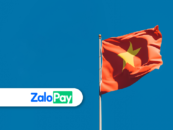Private Equity in Vietnam. The country kicked off the year 2018 with major investment deals in private equity, revealing investors’ confidence in the rapidly growing economy.

Image: Ho Chi Minh City, by De Visu, via Shutterstock.com
In February, Malaysia-based investment fund Creador announced its plan to open an office in Ho Chi Minh City and spend as much as 15% of the upcoming US$500 million Creator IV fund on Vietnam-based private equity over the next three years.
The fund made its debut in Vietnam earlier this year by spending UD$43.8 million for shares in leading retailer Mobile World Corporation, which owns the Thegioididong and DienmayXANH brands.
“We see tremendous opportunities for growth capital along the lines of emerging companies like Mobile World, but also the Vietnamese government continues divertments of state-owned enterprises,” Brahmal Vasudevan, founder of Creador, told the Private Equity International. “We think it is a very interesting market and we see a lot of similarities with what we have done in India and Indonesia.”
Last month, American private equity firm Warburg Pincus unveiled a US$200 million joint venture with Vietnam’s Investment and Industrial Development Corporation, better known as Becamex IDC.
The partnership followed the fund’s US$200 million investment in 2013 into Vincom Retail, the leading mall operator in Vietnam, for a 15% stake. Vincom Retail’s US$700 million listing last year was the largest initial public offering to ever be held in Vietnam.
Warburg Pincus also partnered with VinaCapital in 2016 in a US$300 million joint venture for hospitality investments across Southeast Asia.
Since Vietnam received one of the its first major deals by global private equity firms back in 2007, several prominent foreign investors have entered the market, drawn by Vietnam’s fast growing economy.
Private Equity in Vietnam Drivers
According to the Private Equity in Vietnam report by Mekong Capital, there are many drivers to the growing interest in Vietnam including a stable political backdrop, a GDP growth hovering around 6%, and the increasing number of companies of investable size.
“Part of this has been driven by liberalization of the Investment Law and the Enterprise Law,” the report says. “The changes make it easier for funds to structure their investments and to invest in more sectors with greater certainty.”
Launched in 2001, Vietnam-based private equity firm Mekong Capital invests in Vietnam’s consumer-driven sectors such as retail, restaurants, consumer products and distribution.
Mekong Capital made several successful exits in its first two funds through sales to trade buyers and share sales after local IPOs. Earlier this year, it sold all of its shares in Mobile World, which totaled up to a cumulative net proceed of US$199.4 million, according to a report by Reuters. The firm’s Mekong Enterprise Fund II previously invested US$3.5 million in the Vietnamese mobile device and home appliance retailed for a 35% stake in 2007.
But as in any emerging market, there are several operational challenges and risks for private equity firms in Vietnam. In particular, corporate governance and management standards in Vietnam are low in many sectors, which is both a challenge and an opportunity for private equity in Vietnam.
“Equitized companies often retain many bad habits from the state owned days, such as managers receiving under-the-table commissions on purchases and sub-contracting to related parties of senior executives,” the report says. “Private companies may not face such issues, but they typically under-invest in developing their management teams and are often a ‘one-man show’ with no clear path to long-term sustainability.”
Featured image by Looker_Studio via Shutterstock.com.







